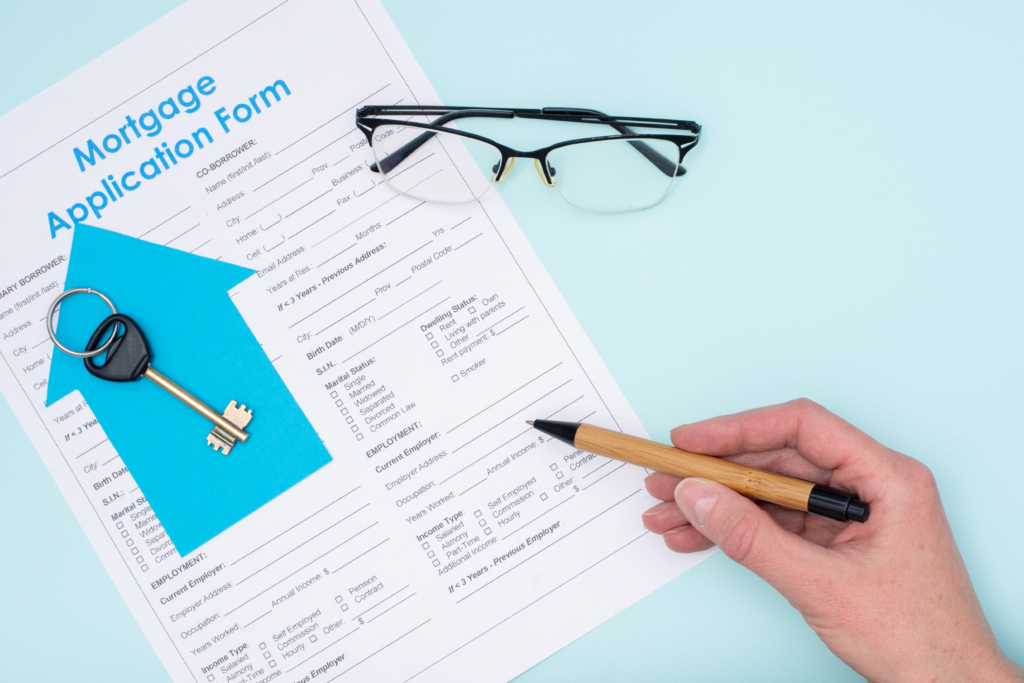After a few years of living in Japan with a steady income, many people with growing families start thinking about buying their own home. If that’s you and you’re also a foreigner, then keep reading to learn everything you need to know about, and be mindful of, when purchasing real estate in Japan.
Are Foreigners Allowed to Purchase Real Estate in Japan?

Every country has different regulations regarding the owning of real estate by foreigners. For example, in Singapore and the Philippines, foreigners can purchase residences but cannot own land. Then in Indonesia, no kind of real estate can be registered under a foreign name. On the other hand, presently in Japan, there are no limitations like that. Foreigners can purchase homes and own land for whatever purpose, under the same contracts used by Japanese people. That being said, there are some problems that only foreigners will encounter when purchasing real estate in Japan. We’ll now explain what the entire process looks like.
What Purchasing Real Estate in Japan Looks Like for Foreigners
Purchasing real estate in Japan looks the same for Japanese people and foreigners. However, in some cases, foreigners may be asked to provide different kinds of documents.
Decide What You Want to Buy, Then Sign a Contract with a Real Estate Company

First, use a listing site to look for the kind of properties you want to buy, or visit an intermediary real estate company and tell them what you’re after. When you find something that interests you, arrange a visit through the real estate company. During your first inspection, take note of things like how long does it take to walk to the property from the nearest station, the local supermarkets or convenience stores, the neighborhood schools, hospitals, parks and other such facilities, or noise pollution.
Once you decide on a property, you’ll have to enter into an intermediary agreement (媒介契約) with the real estate company. This agreement authorizes the company to negotiate the buying of the property on your behalf, for which they will charge a commission (stated in the agreement) upon the completion of the deal.
You can search for the best property to buy or rent in Japan on Japan Property, one of the leading property portal websites in Japan!
Payment and Applying for a Home Loan

Once the intermediary agreement with the real estate company has been settled, you’ll have to decide on how to pay for your new property. Real estate is a pricey purchase, so most Japanese people get home loans that they pay off over a long period of time. You can apply for a home loan through the real estate company, or you can do it yourself directly at the bank. However, please note that at most Japanese financial institutions, home loans for foreigners are only available to those with permanent residency. Here’s how foreigners can apply for a Japanese home loan:
Applying for a Home Loan as a (Permanent Resident) Foreigner
As long as they are permanent residents, foreigners can take out home loans the same way as Japanese people, that is to say, the bank will grant you one if they determine that you have the ability to pay it back. To do that, they’ll check if you have a steady income (including how long you’ve been working and the type of your employment), how much of your yearly salary can go towards repaying the loan, whether you have any other outstanding debts, and other similar matters. If you own your own business, they may also look into what exactly you do.
Additionally, a lot of financial institutions insist that you need to be able to communicate in Japanese to take out a home loan. If you don’t have confidence in your language skills, please check the banks’ homepages to see whether they offer multi-language support.
Applying for a Home Loan as a (Non-Permanent Resident) Foreigner
If you don’t have Permanent Resident status, you can still take out a home loan if you meet a few qualifying conditions. They will differ depending on the bank but, usually, this is what you’ll need to take out a home loan as a non-Permanent Resident:
- A spouse with Japanese nationality.
- The ability to make a down payment of 20% of the property value.
- At least seven years of living in Japan and earning a steady income.
Additionally, you can ask about home loans at Japanese branches of foreign banks, perhaps even one from your home country. However, please note that many operate on a floating-rate lending system, so there’s a chance that your interest rate can suddenly go way up, making it difficult to pay off the loan.
Down Payments, Commissions, Revenue Stamps
Once you decide on a payment method and your home loan has been provisionally approved, you’ll have to sign a contract of sale and pay a percentage of the property’s value to the intermediary real estate company. Besides their commission, you’ll also have to prepare revenue stamps that will go on the contract.
When purchasing real estate in Japan, you don’t just pay the value of the property. You also have to pay the real estate acquisition tax, the registration and license tax, fire insurance, earthquake insurance, and other duties. As a rule, they tend to come out to about 10% of the property value. We’ll talk more about taxes in another section.
Contract of Sale

A contract of sale (売買契約) is a legal document that transfers ownership of the real estate property in question from the seller to the buyer. You’ll have to prepare many different documents to sign one, most likely including the following;
- Registered legal seal
- Certificate of your seal registration (印鑑証明書)
- Document confirming your address
- Passport
* Most foreign contracts are signed, but contracts in Japan require a seal, so you should make sure to get one beforehand.
When entering into a contract of sale with a real estate company, you will be handed a disclosure statement (重要事項説明書) listing payment methods, the property rights, legal restrictions, and procedures in the event of the contract being cancelled. This is very important information, so please read it carefully.
Transfer of Ownership

Once all the contracts have been signed and all the paperwork filled out, you may take ownership of your newly purchased real estate property and start living there. During this time, it’s important to make sure that all your rights as the new owner are spelled out clearly and properly noted in a national register (登記簿). This is usually left to a judicial scrivener. Once that process is completed, you can expect a notification of ownership registration (登記識別情報通知書) in the mail.
The Foreign Exchange and Foreign Trade Control Law states that whenever foreigners buy real estate in Japan, they have 20 days to notify the Ministry of Finance of the fact through the Bank of Japan, so make sure you don’t forget about this step. You can download all the proper paperwork from the Bank of Japan’s website. However, if you bought your property from a foreigner residing in Japan or purchased it for non-profit purposes, you may not have to notify the government at all. To be sure, make sure to ask your real estate company about it.
Real Estate-Related Taxes

You have to pay the proper taxes when buying real estate in Japan, whether you’re a foreigner or a Japanese national. They include:
Taxes Paid Upon Purchasing a Property
The real estate acquisition tax: This is a tax imposed on the sum you’ve paid for your real estate property. You should receive a notification of it in the mail from your prefectural government a few months after the purchase. The tax is calculated based on the value of the property (known as the “assessed value of fixed assets”; 評価額).
The registration and license tax: This is a tax imposed on the registration of your real estate property. It comes out to 2% of the real estate’s standard taxable value (課税標準額).
Annual Taxes
Fixed property tax: This is a tax imposed on the owner of the property every January 1st and paid to the local municipality. The tax is 1.4% for most municipalities, and for your private residence, the standard taxable value (i.e. denominator for the tax) is one-third of the assessed value (one-sixth in the case of small residences).*
Municipal taxes (City planning tax): Like the fixed property tax, this one is imposed on the owner of the property every January 1st. As the name suggests, the city planning tax goes towards city planning, and the taxable value (i.e. the denominator) is two-thirds of the assessed value (one-third for small residences). The tax rate is 0.3% at most, and it is paid alongside the fixed property tax.
* The assessed value for your property is noted in your local municipality’s property tax ledger.
Real estate owners should be notified of the amount that they owe via mail every year between April and June. Most people pay the amount in four installments, but some municipalities allow you to pay all of it at once. The sum owed does not change, but if you don’t pay the sum on time, you will end up owing more money due to the late payment charges, so make sure you take care of your taxes on time.
Things Foreigners Should Watch Out for When Buying Real Estate in Japan

Buying real estate in Japan looks basically the same for foreigners and Japanese nationals, but some companies might not have a lot of experience with foreign buyers, which may delay the entire process and lead to all sorts of trouble. When choosing a real estate company to work with, make sure to pick one that offers multi-language support or one that has experience in dealing with foreign buyers. Additionally, all real estate deals require a lot of difficult Japanese and technical knowledge, so if you don’t have a lot of faith in your language skills, have a friend or an expert interpreter translate for you.
Summary
A home is one of the most expensive things you will buy in your entire life, so it’s important you do it with trusted professionals. You should also prepare thoroughly so that you may avoid all sorts of troubles down the road.
Header credit: PIXTA
If you want to give feedback on any of our articles, you have an idea that you’d really like to see come to life, or you just have a question on Japan, hit us up on our Facebook!
The information in this article is accurate at the time of publication.

